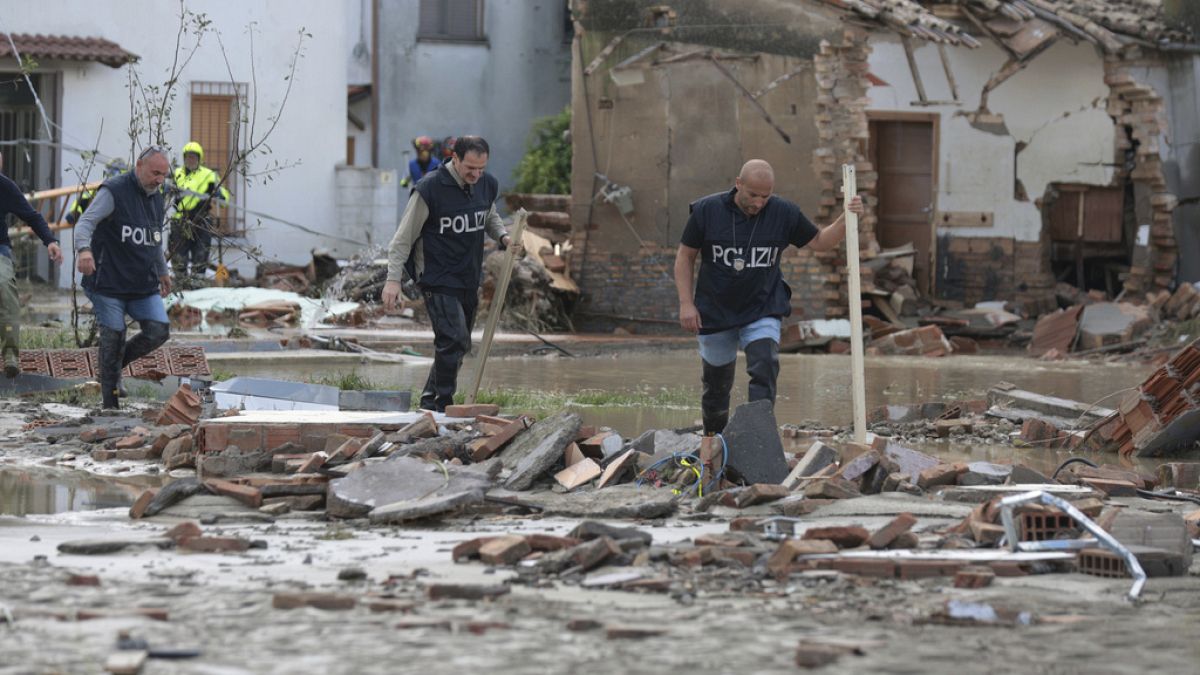Parts of Europe, including regions in Italy, Poland, and the Czech Republic, are facing the aftermath of devastating flooding that has resulted in dozens of deaths and hundreds of evacuations. The Italian government has announced plans to allocate €20 million to the region of Emilia Romagna, which was one of the worst affected areas. Italian Premier Giorgia Meloni stated that the funds would be used to meet initial needs, restore essential services, and further allocations will be made available as necessary. An emergency meeting is scheduled to address the situation in Emilia Romagna.
The flooding in the Emilia Romagna region of Italy led to the evacuation of over 1,000 people, with the village of Traversara being severely impacted. Local mayors have urged residents to either move to higher floors or leave their homes altogether. Similarly, other European countries such as Poland and the Czech Republic have also experienced significant flooding. In Poland’s Klodzko region, the army and locals are working together to clear debris from the streets in the aftermath of the extreme weather. The flooding disrupted telecommunications in some areas like Ladek Zdroj and Stronie Slaskie.
In the Czech Republic, efforts have begun to clean up streets and houses that were affected by flooding. In the city of Krnov, many homes were left uninhabitable after water levels rose over two meters high. The widespread devastation caused by the flooding in Europe resulted in 24 reported deaths. Following discussions with leaders from Poland, the Czech Republic, Slovakia, and Austria, the EU has promised billions in emergency repair funding to aid in the recovery efforts. These funds will be critical in helping these regions rebuild and restore essential services in the aftermath of the flooding.
The flooding in Europe has highlighted the urgent need for increased preparedness and response measures to address the impact of extreme weather events. Climate change has been identified as a key factor contributing to the increasing frequency and severity of such events. As these natural disasters continue to pose significant threats to communities across Europe, it is essential for governments and organizations to prioritize investments in infrastructure, disaster preparedness, and climate mitigation strategies. By taking proactive steps to address the root causes of flooding and other climate-related disasters, countries can better protect their citizens and reduce the devastating consequences of such events.
In light of the recent flooding in Europe, there is a growing recognition of the importance of international cooperation and solidarity in responding to natural disasters. The EU’s response to the flooding in countries like Poland, the Czech Republic, and Italy underscores the value of working together to address common challenges. By pooling resources, expertise, and support, countries can more effectively respond to emergencies and assist those in need. The solidarity shown by the EU and its member states in providing emergency funding and assistance to flood-affected regions demonstrates a commitment to standing together in times of crisis and supporting one another in times of need.
As recovery efforts continue in flood-affected areas across Europe, it is essential for governments, organizations, and communities to work together to rebuild and strengthen resilience in the face of future disasters. Investing in sustainable infrastructure, early warning systems, and disaster preparedness measures can help mitigate the impact of flooding and other climate-related events. By prioritizing resilience and adaptation strategies, countries can better protect vulnerable populations, reduce losses, and build more sustainable communities for the future. The recent flooding serves as a stark reminder of the urgent need to address climate change and build a more resilient and sustainable future for all.











